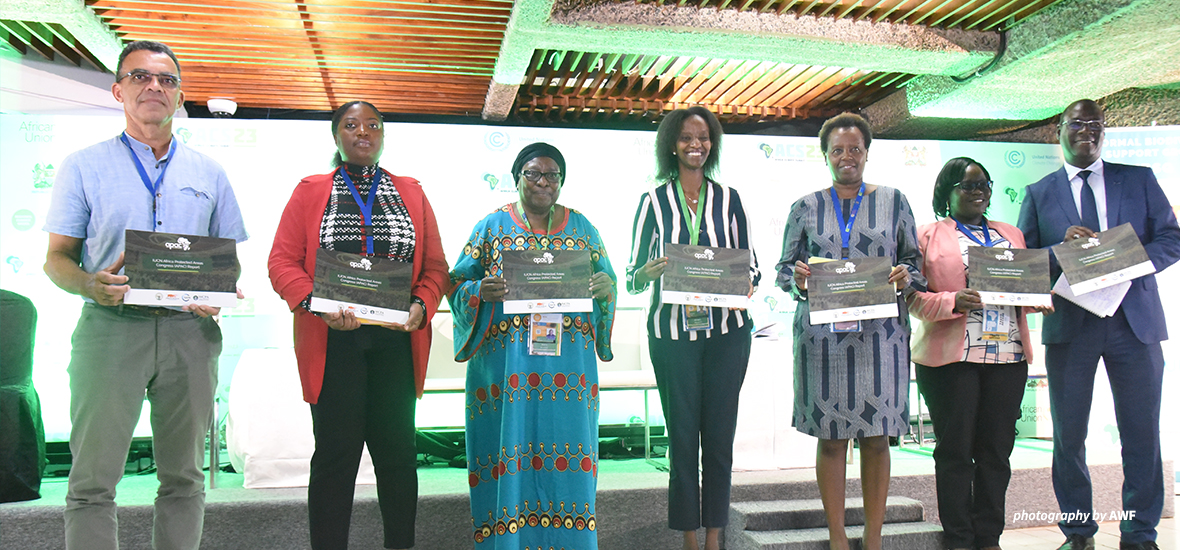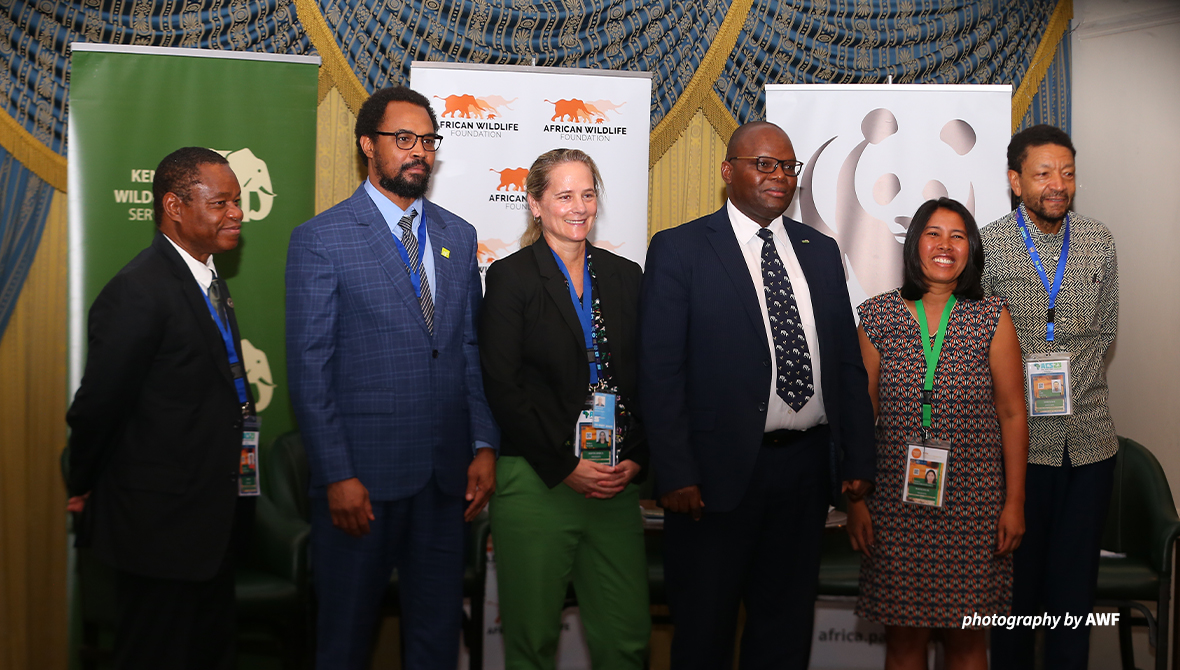Africa Climate Week: The value of Africa to the world

On September 7, two Africa Climate Week panels underscored the role Protected and Conserved areas (PCAs) play in global goals to meet the climate crisis. However, biodiversity conservation and climate adaptation and mitigation will only be achieved if Indigenous Peoples and Local Communities (IPLCs) own and drive the solutions. Therefore, inclusivity, co-management, locally-owned investment, and trust in the knowledge of Indigenous people who have stewarded the land for generations are all necessary.
Panel 1: “Nature as the backbone for climate and biodiversity solution”
“In this delicate web of life on our planet, every action reverberates across ecosystems and consequently affects the environment and humanity,” said Beatrice Cyiza, Director General of Environment and Climate in Rwanda, in her keynote speech.
Before turning over to the panelists, Cyiza officially released the Africa Protected Areas Congress Digital Report, which highlights the key messages and outcomes of the 2022 inaugural congress.
“Let us embrace this report not merely as a document but as a compass that guides our decisions, a source of inspiration that fuels our actions, and a reminder of the promise we have made to our people and our planet,” she continued.
Jane Karuku, CEO, East African Breweries LTD, spoke to how businesses can ensure sustainability, pointing to research to grow resilient seeds, investment in building biomass plants, and other strategies that can capitalize on nature while conserving and climate-proofing it.
“You have to define what your purpose is,” she said. “How do we thrive for the next 100 years and beyond?”

The panelists gathered with copies of the APAC Report.
Dr. Arona Soumaré shared that to enable larger investments into nature-based solutions, “We need to change the narrative and break the silos. We need to make the business case for nature.”
Elizabeth Gulugulu Machache of the African Youth Initiative on Climate Change said that young people want to make a difference for climate change, but their action will only be enabled if they can see the rewards. “Point number one is to do with the lack of incentives. You want young people to volunteer? You are already missing the point.”
Panel 2: “Protected and conserved areas as a solution to climate change”
AWF co-hosted an event alongside the Kenya Wildlife Service (KWS) and WWF celebrating the formation of the Africa Protected Area Directors (APAD) platform and charting a path towards resilient protected areas that contribute to climate action and economic prosperity.
Dr. Erustus Kanga, HSC, Director General of KWS, opened with a keynote speech about how the climate agenda cannot progress without PCAs. He noted that PCAs can be invaluable economic assets for communities as well.
“The wellbeing of the planet relies on our collective action,” he concluded. “Let’s move toward a more resilient Africa.”
Dr. Yemi Katerere, ACBA Coordinator, noted that more than 40% of Africa’s landmass is covered by PCAs. He warned about the impact of climate change on PCAs, saying that PCAs need to build up their management to support climate adaptation and mitigation. As part of that strategy, we must build up a robust rights-based approach to conservation.
“Human-wildlife conflict will increase. As conditions change, we will see an escalation, and that has a major impact, including on neighboring communities involved in agriculture. We need to make protected and conserved areas work for them to adapt.

The panelists discussed nature as a solution for climate.
Melissa de Kock, Head of the Biodiversity, People and Landscapes Unit, UNEP, called to overcome the silos between biodiversity and climate change actors. She said there needs to be greater understanding of nature-based solutions to climate change, as well as how PCAs can be climate solutions when managed under good governance.
“We need conservation voices in these climate conversations,” she added.
Mahamat Abakar Assoutouti, Senior Climate Change Specialist, Adaptation Fund Secretariat, noted that getting funds for nature-based adaptation solutions can be challenging. Often, when countries allocate adaptation funds, they want it to be for infrastructure.
“But nature-based solutions like coral reef restoration are invisible infrastructure,” he said, further reinforcing nature-based solutions as tools for climate adaptation.
Together, the panelists painted a picture of Africa’s PCAs delivering climate adaptation and resilience at a local level, driving local ownership and wealth, and mitigating climate change to affect the entire planet.
>>Africa Climate Summit: Africa's Growth will Ignite Global Solutions